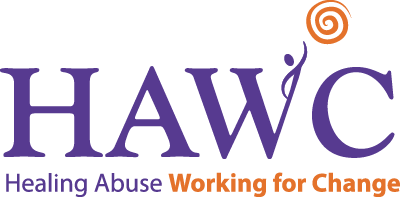In recognition of April as Sexual Assault Awareness Month, HAWC joins survivors and advocates to draw attention to the pervasive issue of sexual violence.
When people think about “sexual violence,” they might think of an attack from a stranger or workplace harassment. While these are very real forms of sexual violence, “intimate partner violence” is often left out of the conversation. Sexual assault can and does happen within abusive romantic relationships, and there are countless misconceptions out there about what that really means. As a result, many do not recognize more subtle forms of sexual violence, allowing harmful patterns of behavior to continue. It’s essential to challenge these myths about sexual abuse to learn more about how to support the fight against violence.
- Myth 1: Sexual violence is most often a random occurrence between a stranger and an unsuspecting survivor. In fact, 50% of women who report sexual violence cite their past or present intimate partner as the offender. Abusers use sexual violence as a tool to gain power and control over their survivors.
- Myth 2: It’s only sexual abuse if someone is forcing you to engage in sexual activity. Like all forms of abuse, tactics and behaviors vary based on the individual relationship. Sexual abuse in a relationship could involve coercing a partner to engage in sexual activity through manipulation, threat, and intimidation. Controlling how a partner practices safe sex or altering a partner’s birth control methods can also fall under this category.However, sexual abuse can be more subtle. While these methods of control might appear less destructive, recognizing these behaviors now can prevent potentially dangerous abuse in the future:
- Excessive jealousy. If partners view your body as “conquerable,” they fear others view it that way too. Curtailing that paranoia, abusive partners will often control a survivor’s relationship with others or accuse a partner of cheating. They may also critique their partner’s clothing choices, either forcing them to cover up or “show off.”
- Collecting intimate photos. Even if a partner consents to taking a sexual photo at first, if the other partner posts these photos online, shows them to their friends, or uses them as a threat to keep you in a relationship, this can be considered sexual abuse.
- Withholding sex. While sexual violence is often associated with forcing someone to participate in sexual activity, sexual abuse within a relationship can also involve withholding sex and affection because a partner disobeyed or angered the abuser. In this way, the abusive partner gains control over when, where, and what happens during sexual activity and communicates to the other party that their sexual needs or desires are less important.
- Myth 3: Sexual violence cannot happen in otherwise “healthy” relationships. These subtle forms of sexual abuse and manipulation can occur in relationships that seem otherwise healthy. If you’re not experiencing other forms of abuse, or if culture and gender roles excuse these behaviors, then this manipulation can easily be underestimated. In any relationship, remember that you control your own body: any relationship that makes you feel otherwise isn’t healthy.
The effects of sexual abuse in relationships are long-standing. In the moment, they make a partner feel belittled, humiliated, and submissive. If continued or un-addressed, sexual violence leads to higher rates of post-traumatic stress disorder and suicidal ideation. This abuse, which often involves physical trauma, can also result in unwanted abortions, pregnancies, and sexually transmitted diseases.
With this in mind, discussions around how sexual violence can occur in intimate relationships is life-saving. If you or someone you know is experiencing any form of sexual violence in a relationship, sit down and develop a series of plans: what are the important phone numbers you should memorize? Who are the friends you can talk to, and how can you let them know if they ever need to call the police? Can you leave your house in the event of an emergency? Is there a professional who can give you advice?
Safety planning can seem overwhelming, and recognizing the signs of sexual abuse in a relationship may be less simple than one would expect. For advice, call HAWC’s 24-Hour Hotline at 1-800-547-1649 or contact the YWCA Northeastern Massachusetts (formerly YWCA North Shore Rape Crisis Center) at 800-922-8772 or the National Sexual Assault Telephone Hotline (RAINN) at 800-656-HOPE.
To learn more about forms of sexual violence that can occur in intimate relationships, keep up-to-date with HAWC’s blog throughout the entire month of April.
References
- (April 21, 2016). “Sexual Assault Can Happen in Relationships, Too.” U.S. Department of Health and Human Services: Office on Women’s Health. Retrieved from https://www.womenshealth.gov/blog/sexual-assault-relationships .
- “Subtle Sexual Abuse in Abusive Relationships.”Hidden Hurt. Retrieved from http://www.hiddenhurt.co.uk/subtle_sexual_abuse.html .
- Taylor, Lauren and Nicole Gaskin Laniyan. “Sexual Assault in Abusive Relationships.” National Institute of Justice. Retrieved from https://nij.gov/journals/256/Pages/sexual-assault.aspx .


